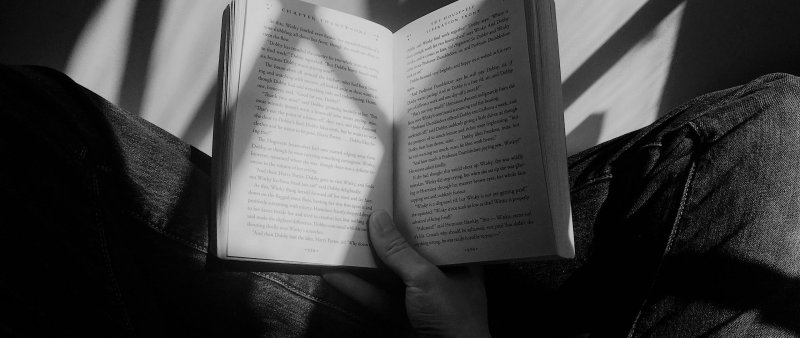Here I reflect, a little, on a few of Nietzsche’s words on and as the body. These reflections are not conclusive or comprehensive. The only agenda is inspired by Nietzsche, to perhaps stimulate the reader’s curiosity and desire to experiment and explore. Please do read my previous article – ‘Why read Nietzsche?‘
“The body is a great intelligence, a multiplicity with one sense, a war and a peace, a herd and a shepherd.” (1)
Nietzsche felt many philosophers, including Plato and Descartes, failed to grasp the significance of the corporeal nature of human beings and the pivotal role of affect.
In much of his writing he explored the impossibility of pure thinking, reminding us that we are embodied thinkers, and our senses and emotions are as much a part of this reasoning as thought, if not more so.
Nietzsche treasured being and walking in nature. In fact, Nietzsche (1967) seemingly suggests physical movement was necessary for a thought to be accepted as plausible when he said –
“Give no credence to a thought that was not born outdoors while one moved about freely”. (2)
He depicted how the air we breathe, the food we eat, the place we live and what we ingest through reading, writing and talking all have an impact on our physiology and philosophy and vice versa. Nietzsche (1974) even advised:
“Our first questions about the value of a book, of a human being, or a musical composition are: Can they walk? Even more, can they dance?” (3)
Nietzsche wrote a poem called ‘Writing with one’s feet’. It emphasised the principle of embodiment through metaphor and description of the anatomy of his writing.
I understand Nietzsche as a passionate defender of the embodied lived experience. His philosophy is one that elevates both known and unknown instincts and drives that interplay with our bodily lived experiences. In fact, Nietzsche seems to suggest the self is the body.
“Behind your thoughts and feelings… there stands a mighty rule, an unknown sage – whose name is self. In your body he dwells; he is your body”(5)
Nietzsche was not defining the body in a conventional way, such as a physical body or a single unit. He viewed it more metaphorically as a collection of corporeal and psychic forces, including emotions and instincts which are in a continual and often conflictual interplay. He saw the self as a plurality of forces, or more precisely a plurality of (relational) affects. These relational affects each express a viewpoint and seek domination. Affects, for Nietzsche, are dynamically and continually interpreting and creating perspective. (6)
This multiplicity can sometimes create confusion and conflict, especially if one gets stuck in thinking there is a such a thing as supremacy, or the right way, or the truth. Perhaps the key is to recognise that they all say many things at once. Rather than seeing this multiplicity of meaning and often unknown elements as something to fear, one could be curious and trust there is something to be listened to in all aspects. This exploration and experimentation is something that therapy can be helpful for. A potential space to sit in the unknown for a while, exploring, experimenting and experiencing, and see what might emerge.
Perhaps as Nietzsche suggests this very experience of conflicting affect can dislodge the notion that there is one way to be and create an opportunity for us to be guided into new, more fluid and creative ways of becoming. It can show us there are no limits to novel forms and there is always potential for transformation even within the limitations, obstacles and challenges that we may face. It also tells me that the idea of a rational pure thought that can somehow ignore or overcome the influence of emotions, physical sensations and those forces that reside in the unknown or unreflected, is unlikely. For Nietzsche it seems, nothing is, or needs to be, left behind in this often enigmatic embodied endeavour we might call lived experience.
As I conclude I feel a pressure to tie this short piece up into a nice and neat bow, so that it feels complete and reassuring somehow. However, I also feel the desire to swim. Perhaps the former would be missing the entire point of Nietzsche and the latter highlights his case in point.
To enquire about psychotherapy sessions with Susanna Petitpierre, please contact her here, or to view our full clinical team, please click here.
Susanna Petitpierre, BACP Registered, is an experienced psychotherapeutic counsellor, providing long and short term counselling. Her approach is primarily grounded in existential therapy and she works with individuals. Susanna is available at our Brighton and Hove Practice.
Further reading by Susanna Petitpierre
A consideration of some vital notions connected to Existential Therapies
References –
1) Nietzsche, F. (1883/2010) Thus Spoke Zarathustra (Ed. B Chapko),Ebook.
2) Nietzsche, F. (1967) Ecce Homo, in On the Genealogy of Morals and Ecce Homo, trans. and ed. by Walter Kaufmann. New York: Vintage Books, 1967
3) Nietzsche, F. (1882/1974), The Gay science. With a Prelude in Rhymes and an Appendix of Songs, trans. W Kaufmann, New York: Random House
4) Nietzsche, F. (1882/1974), The Gay science. With a Prelude in Rhymes and an Appendix of Songs, trans. W Kaufmann, New York: Random House
5) Nietzsche, F. (1883/2010) Thus Spoke Zarathustra (Ed. B Chapko), Ebook.
6) Bazzano, M., (2019) Niezsche and Psychotherapy. London: Routeledge.


 Dramatherapy is one of a group of therapies which are called Creative Arts Therapies, along with Music therapy and Art therapy. Today I am going to explore one aspect of Dramatherapy.
Dramatherapy is one of a group of therapies which are called Creative Arts Therapies, along with Music therapy and Art therapy. Today I am going to explore one aspect of Dramatherapy.
